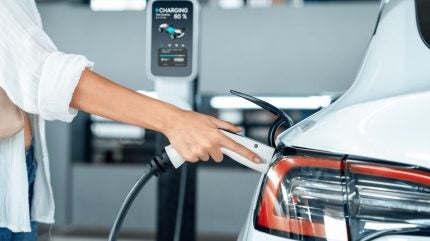
An EY survey has revealed a shift in UK consumer buying intent towards electric vehicles (EVs), with a decline in the preference for petrol and diesel cars.
The EY Mobility Consumer Index shows a growing trend among UK consumers towards EVs, with 59% of potential buyers expressing a preference for EVs, including battery electric vehicles (BEVs), hybrid electric vehicles (HEVs), and plug-in hybrid electric vehicles (PHEVs).

Discover B2B Marketing That Performs
Combine business intelligence and editorial excellence to reach engaged professionals across 36 leading media platforms.
This figure has risen from 54% in 2023 and is slightly higher than the 58% average across other major automotive markets surveyed.
Specifically, the interest in BEVs has increased to 23% from 19% in the previous year, while HEVs have seen a rise to 27% from 25%.
The intent to purchase PHEVs remains steady at 10%.
In contrast, the desire to buy internal combustion engine (ICE) vehicles has fallen to 36% from 41% in 2023, below the 37% average of the surveyed markets.
In the UK, 56% of the respondents said they are considering purchasing a vehicle within the next two years, marking an increase from 45% last year and representing the highest percentage among European countries.
Environmental concerns are the primary motivator for the increased interest in EVs, with 35% of UK respondents citing this as their main reason.
High fuel prices and escalating penalties on ICE vehicles, such as additional taxes, are also influencing factors, mentioned by 31% and 27% of respondents, respectively.
Despite the rising interest in EVs, the EY report identifies several concerns that still deter consumers.
The most significant barrier is the high upfront cost of EVs, with 37% of respondents hesitant due to this factor, a slight increase from 36% in 2023.
Additionally, the lack of charging infrastructure and the cost of battery replacement are joint-second concerns.
EY UK & Ireland automotive leader David Borland said: “Following the remarkable resilience shown by the UK’s automotive sector over the past couple of years with consistent growth in new car registrations, it is encouraging to see EY’s latest Mobility Consumer Index suggesting that the nation’s forward-looking car buying intent is also on the rise.
“This is particularly pleasing given the challenges the UK has seen in declining private retail demand for vehicles in recent times, with fleet sales playing a crucial role in driving new car registration growth.”
The survey comes after a report by the Institution of Mechanical Engineers (IMechE), which said the UK is ‘behind the curve’ in transitioning to a net-zero fleet and meeting net zero goals.




